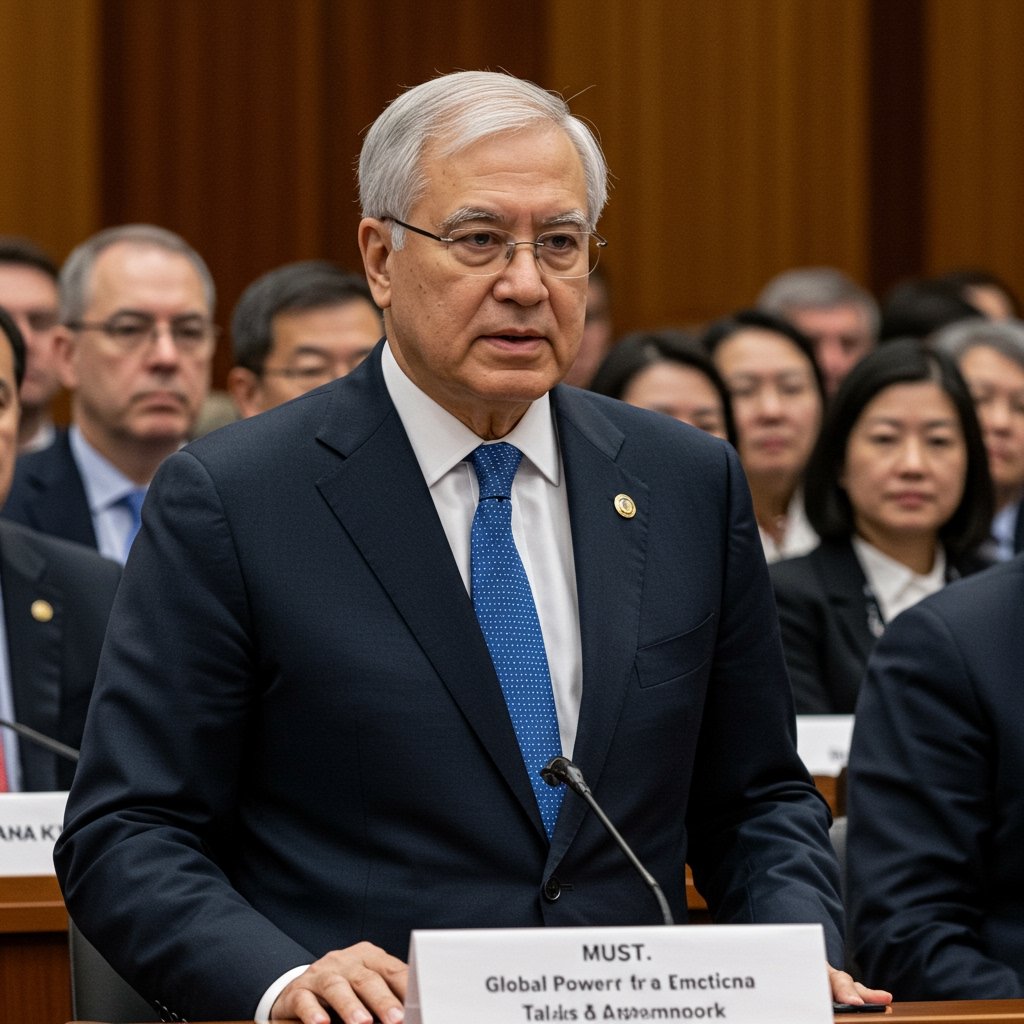Global Powers Engage in Critical Pre-Summit Talks to Forge Unified AI Governance Framework
In a significant development on the international diplomatic stage, key global power players, including the U.S. President, the EU Commission President, and China’s Premier, are currently engaged in a series of intense closed-door negotiations. These high-level discussions are centered on the critical task of developing a much-needed international framework for governing advanced artificial intelligence (AI). The urgent nature of these talks underscores the global recognition of AI’s transformative potential and the parallel necessity of establishing robust, shared guidelines before disparate national approaches solidify.
The negotiations are understood to be focusing on several highly complex and potentially contentious areas. Chief among these are data sovereignty, the setting of ethical guidelines for autonomous systems, and the establishment of international cooperation protocols. These pillars represent fundamental challenges in the global AI landscape, reflecting diverse national priorities and values while simultaneously highlighting the interconnectedness of the technological frontier.
The Imperative for Global Coordination
The rapid evolution of artificial intelligence necessitates a coordinated global response. Without a common understanding and agreed-upon rules, experts warn of the potential for a fragmented global landscape, where differing regulations hinder innovation, create unfair competitive advantages, or, more perilously, fail to adequately address transnational risks posed by powerful AI systems. Such risks range from malicious use and autonomous weapons concerns to systemic biases and questions of accountability. The current negotiations involving the United States, the European Union, and China — major hubs of AI research, development, and application — are seen as a vital step towards preventing such fragmentation and laying the groundwork for a more secure and prosperous AI future for all nations.
These high-level talks are expressly positioned as crucial preparatory steps leading up to the larger Global Future Summit, which is scheduled to convene in Geneva on June 20, 2025. The summit is anticipated to be a landmark event, bringing together leaders, policymakers, researchers, and industry stakeholders from around the world to discuss the most pressing challenges facing humanity, with AI governance expected to feature prominently on the agenda. The outcomes of the current closed-door sessions are intended to provide a foundation, potentially outlining areas of convergence or identifying key compromises needed to achieve meaningful agreement at the broader summit.
Core Pillars of Discussion
* Data Sovereignty: This issue remains a significant point of discussion. Nations hold varying perspectives on the control and ownership of data generated within their borders. Given that vast datasets are essential for training and improving AI models, differing approaches to data sovereignty can impact cross-border data flows, restrict access for international researchers or companies, and potentially lead to a balkanization of the digital landscape. Finding common ground on principles that respect national security and privacy while facilitating the data exchange necessary for AI progress is a delicate balancing act.
* Ethical Guidelines for Autonomous Systems: The ethical implications of AI, particularly in autonomous systems, are profound. Discussions include principles related to transparency (understanding how AI makes decisions), accountability (determining who is responsible when an autonomous system causes harm), fairness (mitigating bias), human oversight (ensuring humans retain control over critical decisions), and safety. Establishing universally accepted ethical standards is challenging due to differing cultural, political, and philosophical viewpoints across nations, yet it is essential for building public trust and preventing harmful applications of AI.
* International Cooperation Protocols: Beyond data and ethics, the leaders are discussing mechanisms for international cooperation. This includes proposals for shared research initiatives on AI safety, protocols for sharing information about emerging AI risks, joint efforts to combat the malicious use of AI (such as in cyberattacks or disinformation campaigns), and potentially harmonizing technical standards where feasible. Such protocols are vital for addressing AI challenges that transcend national borders.
Setting the Stage for Geneva 2025
The decision by the U.S. President, the EU Commission President, and China’s Premier to engage in these focused, pre-summit negotiations signals a collective recognition of the urgency and complexity of AI governance. While significant hurdles remain, the very act of these major global players engaging in detailed discussions on core AI regulatory issues is a positive indication of intent to find common pathways. The success of the Global Future Summit in Geneva on June 20, 2025, in establishing a viable international AI framework will likely depend heavily on the progress made in these preparatory high-level talks. Preventing a fractured global approach to AI regulation is seen not just as a technical or economic challenge, but as a critical geopolitical imperative for the 21st century.





